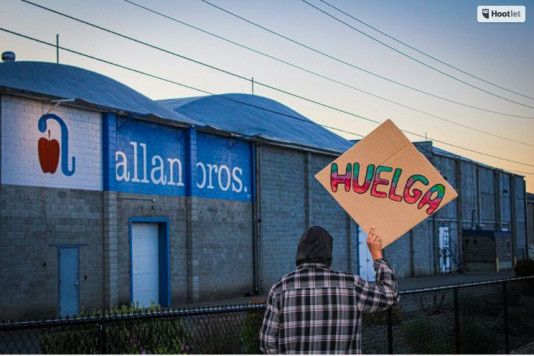
In “Striking in the Coronavirus Depression,” Brecher writes: “The Coronavirus strikes are spreading. They are winning some improvement in worker protections in some localities and workplaces. Do they have a potential for wider impact? The story of West Virginia miners’ struggle for protection against Black Lung disease suggests they might.” Photo: From Familias Unidas Por La Justicia, whose May 7 action is also mentioned in this piece.
How are workers responding to the threats to their health and livelihood created by the COVID-19 pandemic? A new series by labor historian and LNS director of policy and research Jeremy Brecher describes wide-ranging but underreported action.
The series starts with a historical look backward at how workers used Unemployed Councils, self-help mutual aid, and strikes for “Fighting the Great Depression From Below.”
“The Unemployed vs. the Coronavirus Depression” gives a short history of unemployed organizing in the COVID pandemic.
“Self-Help in the Coronavirus Depression” looks at the rent strikes and mutual aid of the COVID era. “Striking in the Coronavirus Depression” describes the hundreds of strikes and wildcat strikes that have demanded safe working conditions and hazard pay in the COVID-era workplace. “Workers vs. the Coronavirus Depression” describes the Strike for Black Lives and the strikes by educators that have put workers power at the center of COVID-19 and racial justice–two of the most central national issues of this era.